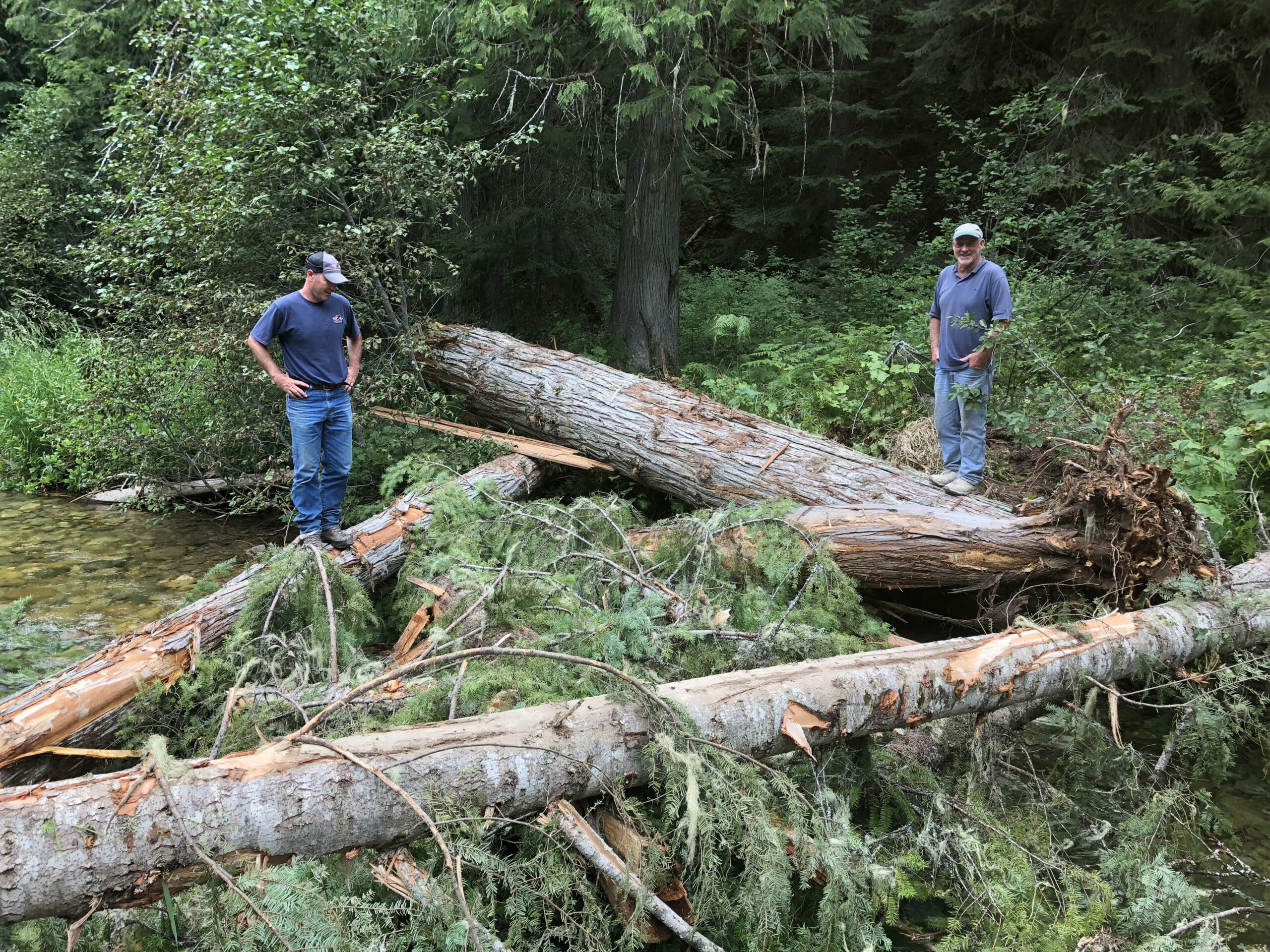By Paul Parson
Coldwater conservation efforts benefit more than trout and anglers.
Trout Unlimited focuses on how conservation efforts will best benefit ecosystems and the fish that live in them, while also providing long-term economic benefits. More often than not, TU relies on local companies to do the heavy lifting, so that means the local economy gets a boost and communities reap the benefits.
Multi-benefit projects and natural infrastructure solutions like flood protection for coastal communities, water quality improvements for impaired water bodies and drought resilience for the West take local expertise and muscle to be completed.
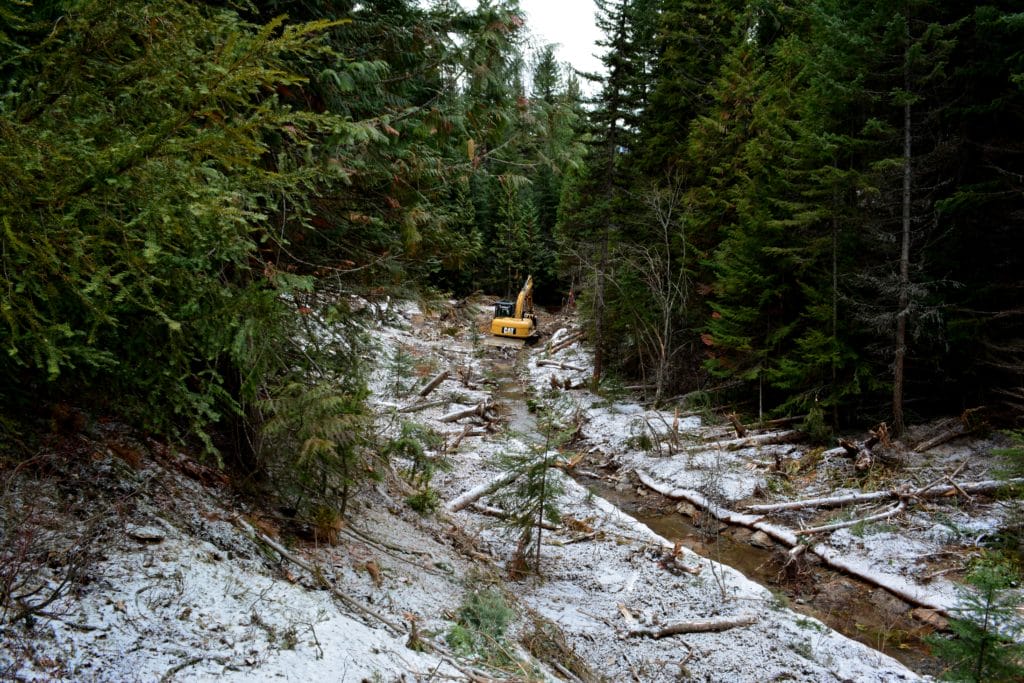
Putting money back into local economies
I work in the Clark Fork River watershed in rural western Montana, where TU is collaborating with the U.S. Forest Service and state agencies to restore streams damaged by historic mining practices.
In 2013, I met a small businessman named Darin Haskins in the town of Superior, a timber and mining town an hour northwest of Missoula along the banks of the Clark Fork in the steep mountainous terrain typical of the area. Darin has lived in Mineral County all his life, and is the owner/operator of Haskins Excavating.
Darin and I became close colleagues and fast friends. He and I both grew up in small towns where we shared similar passions: hunting, fishing and spending time outdoors. Over the past several years, we worked together with an array of partners and local businesses on 16 projects, leveraging federal investments with state and private dollars to restore streams, clean up damage from abandoned mines and install fish screens.
Mineral County is an amazing and unique landscape with clear streams, timbered mountains and very few people. But the ability of local government to provide services is difficult because rural Montana communities like these have such small tax bases. In Superior, as with many western timber towns, the local timber mill has been shuttered, leaving the local economy without industry.
TU taps into the county’s skilled workforce by hiring local contractors.
Money at work
For one recent project to restore a section of Cedar Creek in Lolo National Forest, 96 percent of the $486,033 budget went to local firms who put a dozen people to work on the job. All fuel, grass seed and road gravel were purchased locally.
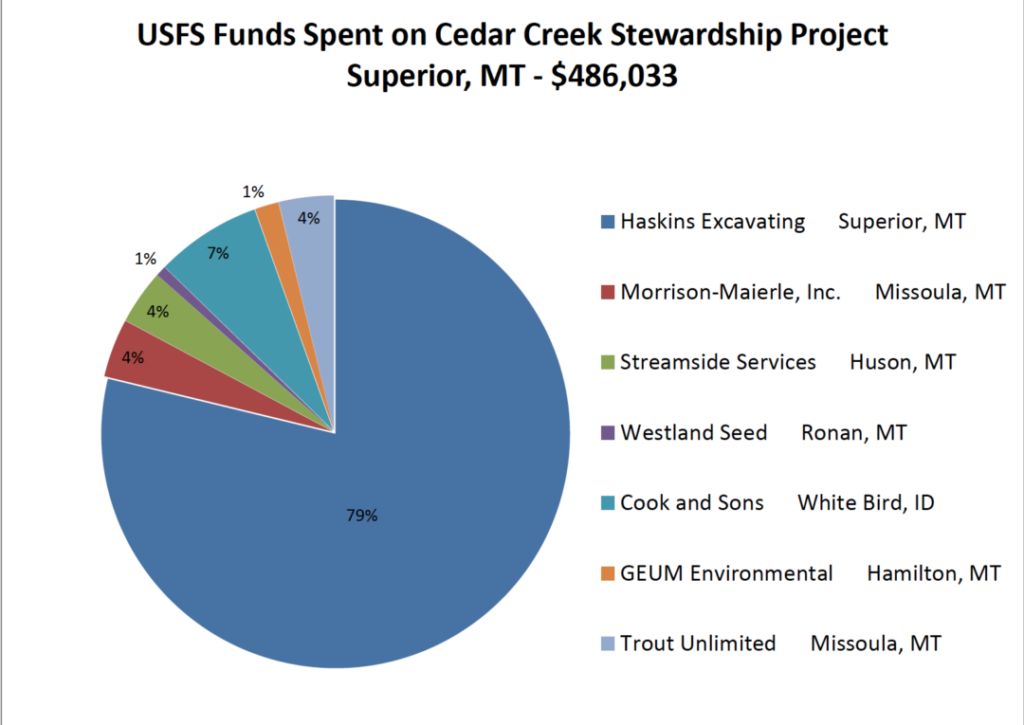
Haskins Excavating has become one of our go-to contractors. Darin utilizes a unique skillset he learned from years of handling logs in the mountains to build the most beautifully complex log structures in our streams. He has now constructed hundreds of large wood structures for TU projects and continues to amaze me with his vision and artistically built habitats.
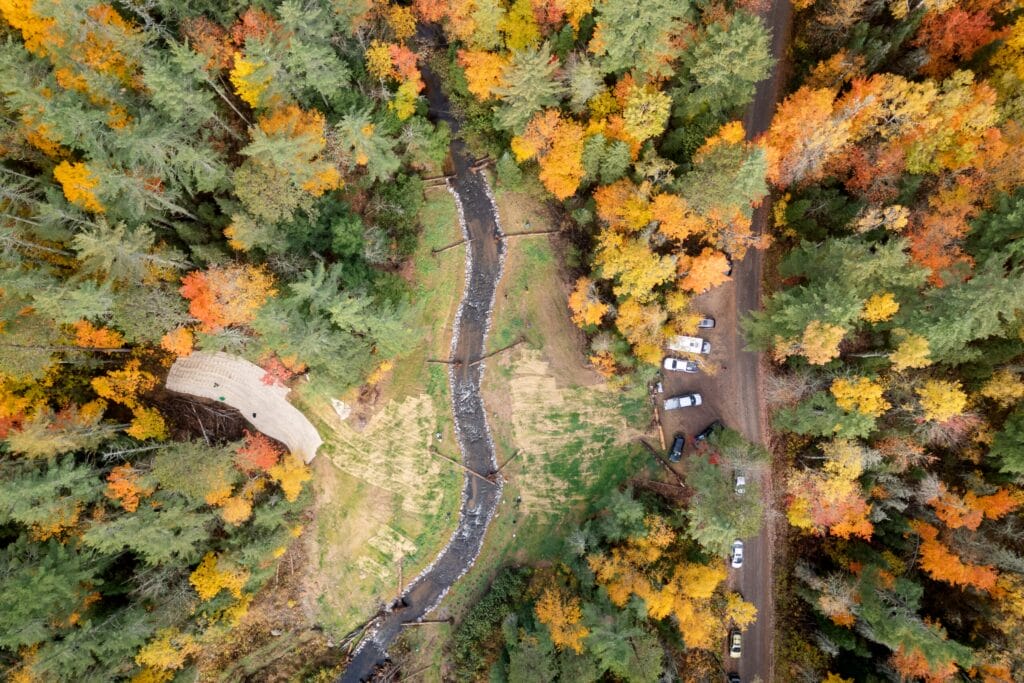
Working for local economies across the country
Our story is not unique at TU. Across the country, many of my colleagues are doing much the same in their local communities putting engineers, equipment operators, laborers, truck drivers, technicians and labs to work conserving their waters.
TU has leveraged federal investments to work on abandoned mine runoff in Colorado, Montana and Pennsylvania, to restore the Rogue River in Michigan and to help agricultural producers address runoff and irrigation issues across the country. We don’t lack for shovel-ready projects in these places as well as in Idaho, Utah and West Virginia.
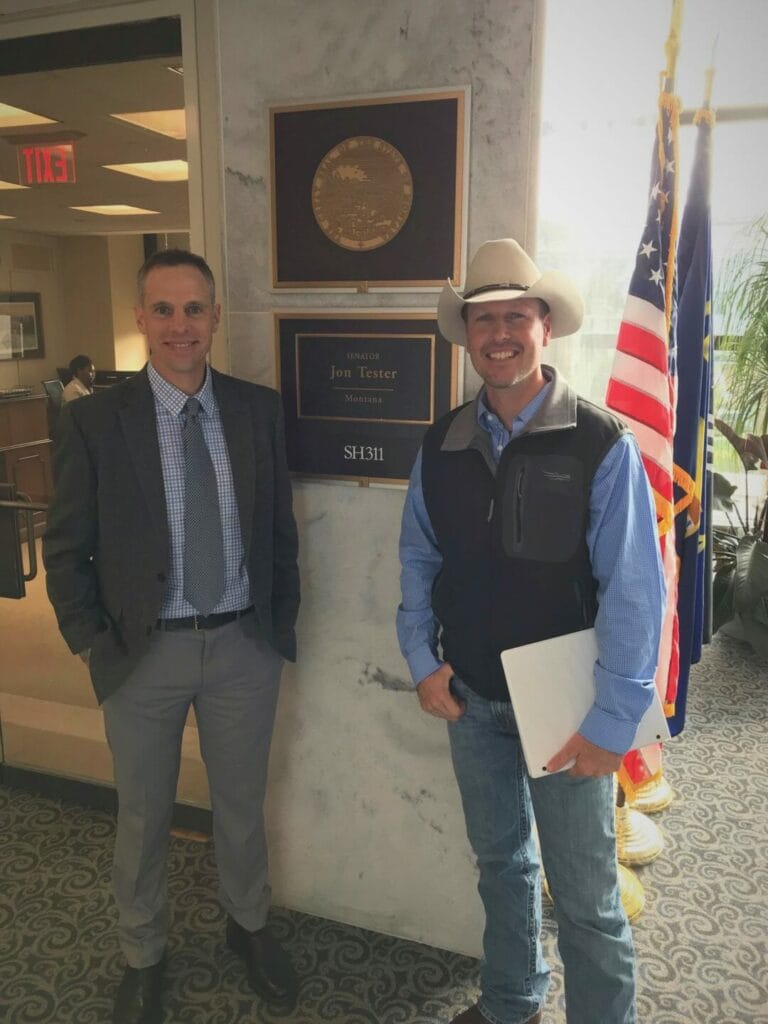
These projects are critical not only to the environment, but also for local communities and their small businesses, workers and families. TU is proud to work with local businesses around the country helping fund the restoration economy for us and for the future.
Paul Parson is Trout Unlimited’s Montana restoration director.



